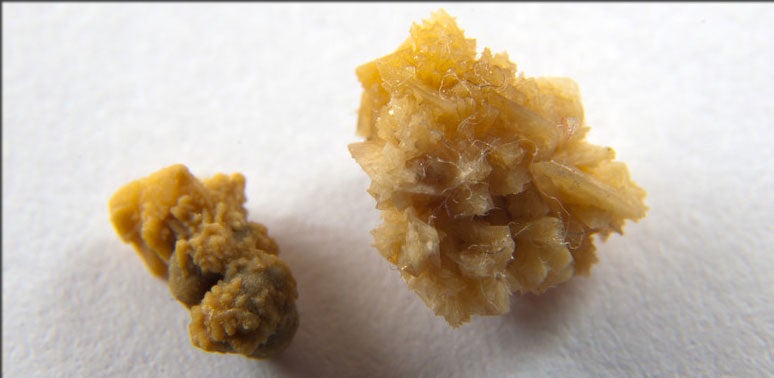
The James Buchanan Brady Urological Institute
Johns Hopkins University
***
What Is Causing the Kidney Stone Epidemic?
The number of people suffering from kidney stones has grown over the past thirty years, and a new study shows it's likely to get worse. Here's why.
Pediatric urologist Gregory Tasian and his team analyzed over 60,000 medical records of people with kidney stones in major cities throughout the U.S. What they found was that people were more likely to develop the painful calcium deposits (pictured above) in their kidneys when average temperatures rose over 50 degrees. In fact, many cases of kidney stones cropped up roughly three days after a hot day.
Now that climate change means that some regions of the globe are heating up, it's likely that kidney stones will become even more common. The main cause for the connection between temperature and kidney stones is dehydration. When you get hot and dehydrated, the concentration of calcium and minerals in your urine goes up, and that can create the stones.
In a statement, Tasian said:
These findings point to potential public health effects associated with global climate change ... It is likely that higher temperatures increase the risk of kidney stones in those people predisposed to stone formation.Kidney stone prevalence has already been on the rise over the last 30 years, and we can expect this trend to continue, both in greater numbers and over a broader geographic area, as daily temperatures increase. With some experts predicting that extreme temperatures will become the norm in 30 years, children will bear the brunt of climate change.
This is just one of many ways that climate change may affect us in ways that we never expected.
Read the full scientific paper in Environmental Health Perspectives.


No comments:
Post a Comment